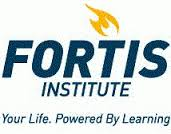What do they do?
Repair, install, or maintain mobile or stationary radio transmitting, broadcasting, and receiving equipment, and two-way radio communications systems used in cellular telecommunications, mobile broadband, ship-to-shore, aircraft-to-ground communications, and radio equipment in service and emergency vehicles. May test and analyze network coverage.
Also known as:
Communications Systems Technician, Field Service Technician (Field Service Tech), Field Technician (Field Tech), Installation Technician (Installation Tech), Installer, Radio Frequency Technician (RF Tech), Radio Repairman, Radio Technician (Radio Tech), Tower Climber, Tower Technician (Tower Tech), Two-Way Radio Technician (Two-Way Radio Tech)
-
2.2%
Change
Ranks #21 in job growth rate50Job Openings
Ranks #11 in net job growth
Colleges with the most graduates that become Radio, Cellular, and Tower Equipment Installers and Repairers
Looking for colleges that offer a specific major? Use the College Match Tool to find your best-matched schools and discover your estimated Net Price!
- Some college, no degree (35%)
- High school diploma equivalent (28%)
- Associate's degree (17%)
- Bachelor's degree (12%)
- Less than high school diploma (4%)
- Master's degree (3%)
- Doctorate or Professional Degree (<1%)
People in this career often have these skills:
- Repairing - Repairing machines or systems using the needed tools.
- Installation - Installing equipment, machines, wiring, or programs to meet specifications.
- Equipment Maintenance - Performing routine maintenance on equipment and determining when and what kind of maintenance is needed.
People in this career often know a lot about:
- Computers and Electronics - Knowledge of circuit boards, processors, chips, electronic equipment, and computer hardware and software, including applications and programming.
- Telecommunications - Knowledge of transmission, broadcasting, switching, control, and operation of telecommunications systems.
- Customer and Personal Service - Knowledge of principles and processes for providing customer and personal services. This includes customer needs assessment, meeting quality standards for services, and evaluation of customer satisfaction.
- Mechanical - Knowledge of machines and tools, including their designs, uses, repair, and maintenance.
People in this career often have talent in:
- Problem Sensitivity - The ability to tell when something is wrong or is likely to go wrong. It does not involve solving the problem, only recognizing that there is a problem.
- Near Vision - The ability to see details at close range (within a few feet of the observer).
- Deductive Reasoning - The ability to apply general rules to specific problems to produce answers that make sense.
- Information Ordering - The ability to arrange things or actions in a certain order or pattern according to a specific rule or set of rules (e.g., patterns of numbers, letters, words, pictures, mathematical operations).
- Arm-Hand Steadiness - The ability to keep your hand and arm steady while moving your arm or while holding your arm and hand in one position.
People in this career often do these activities:
- Inspect completed work to ensure proper functioning.
- Climb equipment or structures to access work areas.
- Lay cables to connect equipment.
- Test communications equipment to ensure proper functioning.
- Install electrical components, equipment, or systems.
- Read work orders or descriptions of problems to determine repairs or modifications needed.
- Interpret blueprints, specifications, or diagrams to inform installation, development or operation activities.
- Replace worn, damaged, or defective mechanical parts.
- Operate cranes, hoists, or other moving or lifting equipment.
- Bolt objects into place.
- Test electrical equipment or systems to ensure proper functioning.
- Assemble electrical components, subsystems, or systems.
- Connect electrical components or equipment.
- Maintain work equipment or machinery.
- Gather information about work conditions or locations.
- Document operational activities.
- Inspect telecommunications equipment to identify problems.
- Adjust equipment to ensure optimal performance.
- Repair electrical components.
- Move large objects using heavy equipment.
- Record images needed to address work issues.
This page includes data from:

 Occupation statistics: USDOL U.S. Bureau of Labor Statistics Occupational Employment Statistics
Occupation statistics: USDOL U.S. Bureau of Labor Statistics Occupational Employment Statistics















